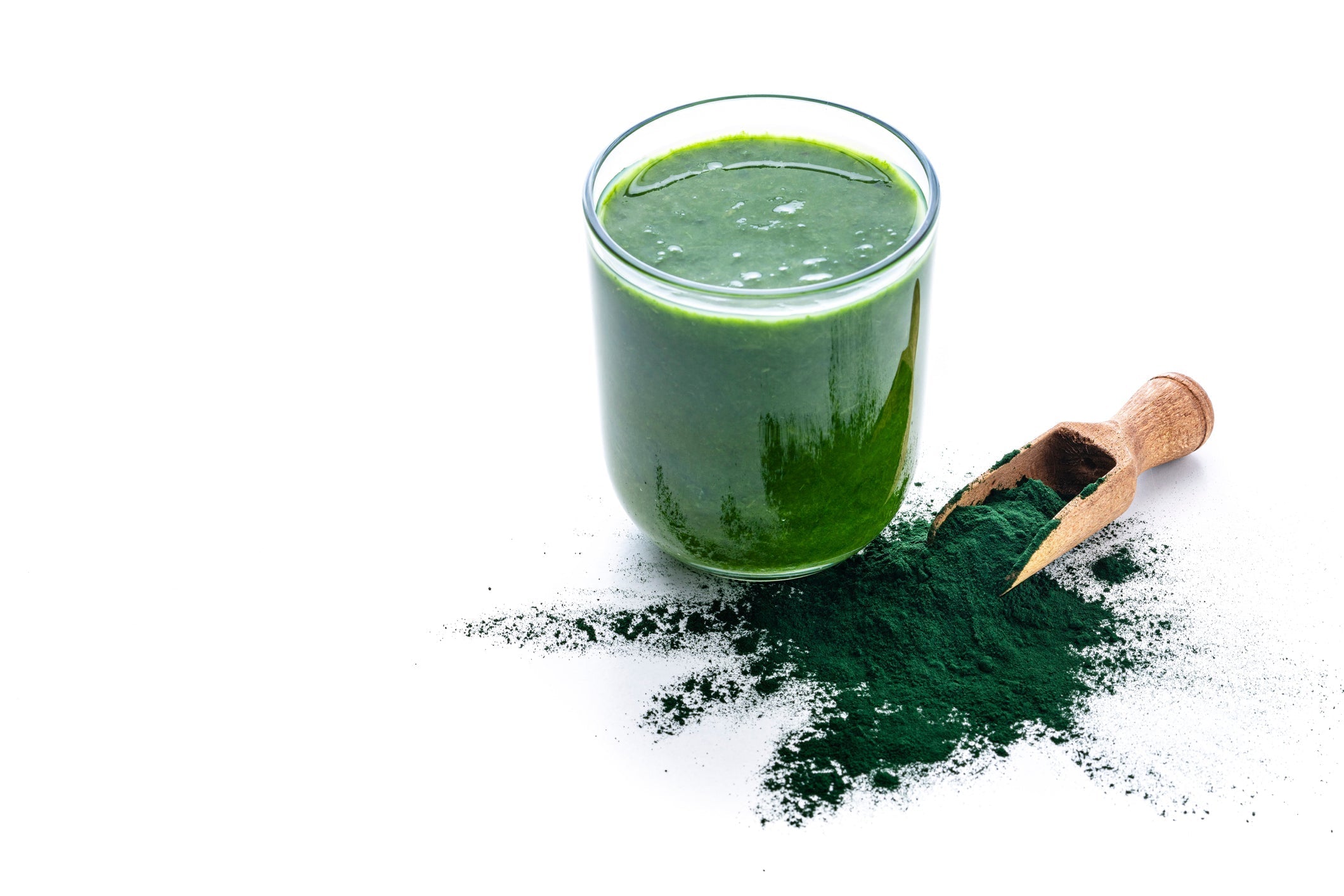
Can you use ashwagandha for stress relief effectively? First, let’s talk about stress for a moment.
The adverse effects of stress have been well-established. We know that exposure to constant stress can take a toll on our mental and physical well-being, increasing our risk for various diseases.
Unfortunately, environmental stressors never go away. We must learn how to deal with it without reverting to unhealthy behaviors.
If you’re looking for a safe and natural way to deal with stress, why not try ashwagandha? It’s a medicinal herb that has been used for thousands of years due to its ability to reduce stress and enhance overall well-being.
Want to know why ashwagandha is an awesome stress-buster? Keep on reading to learn all the top reasons.
What Is Ashwagandha?
Ashwagandha (Withania somnifera) is a herbal shrub native to Africa and Asia. It is also commonly called wild cherry and Indian ginseng.
In Sanskrit, ashwagandha means “smell of horse” because the fresh roots of the herb are said to smell like that. It was also believed that ingesting the medicinal herb would give you strength and vitality, similar to a horse.
Ashwagandha belongs to a group of plants called adaptogens. These plants are considered to confer health benefits such as reduced stress, anxiety, and fatigue and better overall well-being.
As an integral part of Indian traditional medicine Ayurveda, ashwagandha has been used for thousands of years to help with insomnia, rheumatism, and other conditions.
A tonic using the root of the plant, called rasayanas, was given to boost the health of emaciated children. It was also given to adults to help slow down the aging process and address the debilities caused by old age.
Numerous studies have found that ashwagandha has antioxidant, anxiolytic, aphrodisiac, anti-inflammatory, antistress, antitumor, memory-enhancing, immunomodulatory, and astringent properties, among many others.
By boosting overall physical and mental health, using ashwagandha for stress relief can help individuals become stronger and more resistant to the negative effects of environmental stressors.
The Top Stress-Busting Benefits of Ashwagandha
Now that we have looked into the origins of ashwagandha, we will delve into the different stress-busting benefits of this medicinal herb.
1. Lower Stress, Anxiety Levels
Stress stimulates our hypothalamic-pituitary-adrenal (HPA) axis. It triggers a series of responses in the body that leads to the release of cortisol and serum dehydroepiandrosterone sulfate (DHEA-S) — biomarkers of stress in the body.
Stress hormones, in turn, can lead to increased blood pressure, mood swings, weight gain, inflammation, skin problems, and fatigue.
Studies have found that ashwagandha modulates the HPA axis, which then helps reduce stress and anxiety levels in the body.
In one study, 60 adults with a history of chronic stress were grouped into a treatment or placebo group. Those in the treatment group took 300 mg of high-concentration Ashwagandha twice daily for 60 days. Findings showed that the treatment group significantly reduced their stress scales and cortisol levels compared to the placebo group.
The study found that ashwagandha can help build one’s resistance to stress, increasing our quality of life.
Given that chronic stress is debilitating and can be a precursor to mental health issues, using ashwagandha for stress relief and its anxiolytic properties are pretty promising.
2. Better Heart Health
Chronic stress can also increase one’s risk of cardiovascular disease. That’s because experiencing stress may lead to unhealthy behaviors such as smoking and overeating. Increased cortisol is also associated with higher blood sugar and blood pressure.
Ashwagandha can lead to better heart health by protecting against coronary heart disease and other cardiac ailments. Though studies do not indicate a direct connection between Ashwagandha and improved heart health, many scientists have explored the benefits of taking the medicinal herb.
In one study, 40 healthy young adults were placed in three groups. The first group was given 500 mg of standardized ashwagandha, the second group was given 500 mg of standardized Arjuna, and the third group was given 500 mg of both ashwagandha and Arjuna. After eight weeks, results showed a significant increase in their maximum oxygen consumption (VO2 max).
VO2 max is an essential indicator of cardiorespiratory fitness. High VO2 max levels mean that your body can take in more oxygen and deliver it to your muscles. On the other hand, lower VO2 max levels have been associated with a higher risk of hypertension and other cardiovascular diseases.
3. Improved Quality of Sleep
A good night’s sleep can be powerful in combating stress. However, a lot of people with chronic stress also often have insomnia and other sleep disturbances — which in turn, make them even more vulnerable to environmental stressors.
If you want a way to improve sleep, you might want to consider taking ashwagandha gummies or supplements. Studies have found that the medicinal herb has sleep-inducing properties. It can also help improve sleep quality and increase mental alertness upon rising.
According to the Sleep Foundation, this could be due to ashwagandha's triethylene glycol, which can bring about sleepiness. The herb may only modulate GABA receptors, which can induce sleepiness and increase REM sleep time.
4. Improved Cognitive Function
Stress can negatively impact your cognitive function. Those with chronic stress may tend to worry and overthink, leading to forgetfulness and disorganized thoughts.
The memory-enhancing properties of ashwagandha were highlighted in a 2017 study. Researchers found that participants who took 300 mg of ashwagandha extract for eight weeks significantly improved their general memory, information processing speed, sustained attention, and executive function.
Though the mechanisms involved in improving cognitive function have yet to be fully understood, animal studies postulate that ashwagandha influences the modulation of cholinergic neurotransmission.
This process is critical in the chemical neurotransmission in the central and peripheral nervous systems. This impacts a wide range of cognitive functions, including memory, learning, and attention.
5. Enhanced Sexual Function
Chronic stress can influence one’s sexual function. If you’re stressed, you might be too anxious or worried to engage in physical intimacy. An abundance of stress hormones in the body can also lower your sex drive or libido.
According to the Natural Medicine Journal, ashwagandha root extract can help address female sexual dysfunction. Participants who took 300 mg of ashwagandha twice a day for eight weeks showed significant improvement in arousal, lubrication, and orgasm scores compared to the placebo group.
Ashwagandha may increase androgen levels, which is an important element when it comes to the sexual function of women. The medicinal herb can also increase testosterone levels in both males and females.
Frequently Asked Questions About Ashwagandha
What Does Ashwagandha Do for Your Body?
Ashwagandha is a powerful herb that can help reduce stress and anxiety, improve heart health, enhance the quality of sleep, improve cognitive function, and boost sexual function.
Is Ashwagandha Good for Anxiety?
Yes. Ashwagandha is a safe and natural supplement that can reduce your stress and anxiety.
What Are the Ashwagandha Side Effects?
Just like with every other supplement, ashwagandha has some side effects. You may experience nausea, an upset stomach, or diarrhea – but most of these will go away as your body adjusts.
Taking ashwagandha if you are pregnant, breastfeeding, or immunocompromised is not recommended. If you are taking any medication, it’s best to clear it with your doctor first, as ashwagandha may interact with certain medications.
What Does Ashwagandha Do for Females?
Apart from the stress-busting benefits of Aswagandha, studies have found that the medicinal herb can also help with female sexual dysfunction. Ashwagandha is believed to interact with androgen receptors, which play a prominent role in women’s sexual functioning.
Does Ashwagandha Work Immediately?
People will react differently. Some may see the effects of ashwagandha in just 2 to 3 days, while it may take up to several days or weeks for others. It may take up to 10 weeks to see the maximum benefits of taking ashwagandha supplements.
Will Ashwagandha Make You Sleepy?
Ashwagandha can make you drowsy so avoid taking the supplement when you’re driving or engaged in vigorous activity.
Do You Take Ashwagandha at Night or in the Morning?
You can take ashwagandha in the morning or at night. But if you want to maximize the relaxing and sleep-inducing benefits of the herbal supplement, take it at night.
Bust Stress with Ashwagandha
Dealing with stress is no doubt challenging. Over time, exposure to stress also takes a toll on our physical and mental health, making us even more vulnerable to environmental stressors.
Thankfully, we have a medicinal herb that can bust away stress and all the problems that come with it.
By using ashwagandha for stress relief and its other health benefits, you add a powerhouse supplement to your regimen that can reduce stress and anxiety and enhance your overall well-being. This, in turn, can provide us with a better quality of life.
Best of all, ashwagandha can help you feel better, naturally!









Leave a comment
This site is protected by hCaptcha and the hCaptcha Privacy Policy and Terms of Service apply.